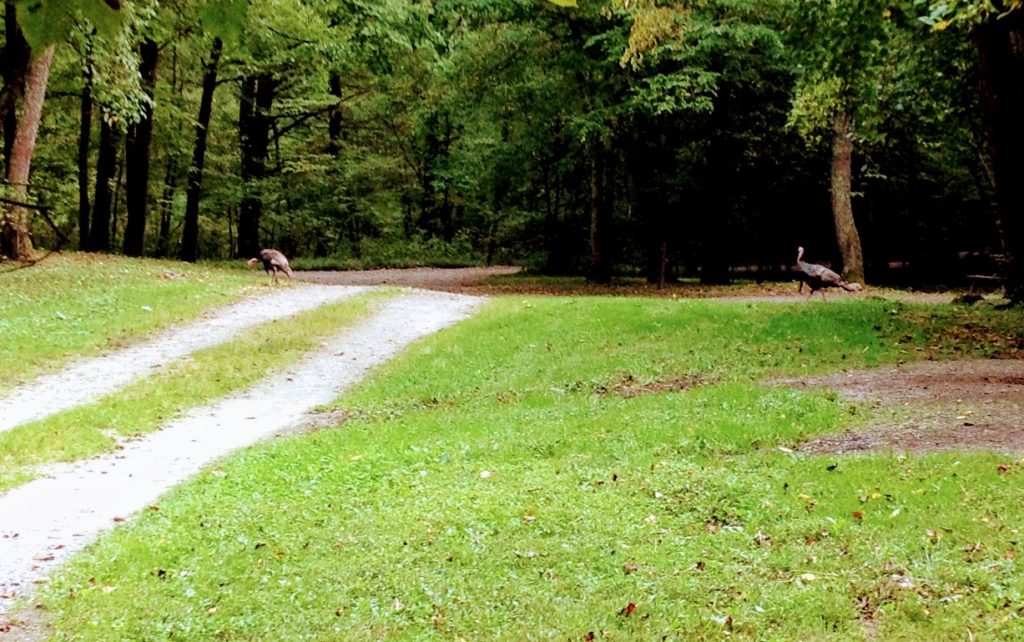
The God of grace
Nahum 1: He recognizes and welcomes anyone looking for help.
Even as the prophet prepares to deliver his sermon of condemnation on the mighty nation of Assyria he can’t help but rejoice in the grace and mercy of God. This same God who declares his judgment on those who reject his claim on their lives has nothing but good news for those who turn to him for help. In fact, the Lord is drawn to such people. I love the fact that even in these portions of the Old Testament that appear to be focused on God as Judge of the World that there are these beautiful word pictures of him as the God of Grace. Nahum declares that “no matter how desperate the trouble” that God is more than willing to “recognize and welcome” all who come to him. In an uncertain world I need such a Savior. I’m reminded in this passage that I don’t have to come to God and convince him that I’m worthy of his help in my life. Instead, I see that he stands ready to extend his mercy to me. In the parable of the prodigal son, the returning son expects to have to make concessions, to take a lowly role if he wants to, once again, have a place in the Father’s household. Instead, the Father runs to him, embraces him, and immediately begins celebrating his return. Hundreds of years before Jesus ever tells this story, Nahum understands this about God, declaring, “He recognizes and welcomes anyone looking for help.”
Take Away: The Lord stands ready to extend his mercy to us.
Category: Devotionals
Archives of my daily devotionals
Devotional on Nahum

At just the right time God will speak
Nahum 1: And God has something to say about all this.
Things don’t look good for God’s purposes in the world. A wicked nation is doing very well. Their capitol city sits at the heart of incredible power and evil. God’s people are small in number and spirit. Is this the end of it all? Will sin and evil win the day? Nahum calls for calm as he declares good news for all those who love that which is good. Nineveh appears to be on top of the world, but “God has something to say about all this.” The “top of the world” position of that wicked city is a mere anthill in the eyes of God and when the Almighty acts, even that anthill will be “mowed down flat.” Through the centuries there have been many times when it seemed this world was out of God’s control and that the cause of righteousness was lost. There have been times when God’s people were speechless in the face of overwhelming sin. That’s okay. You see, even when we’re at a loss as to what to do or say, at just the right time, God will speak. What appears to us to be overwhelming circumstances is a mere anthill to the Lord. My mission in such times is, first, to keep trusting in him even when it seems evil has the upper hand and second, if he can use me, to be a part of God’s remedy for a sin-sick world.
Take Away: At just the right time the Lord will speak.
Devotional on Nahum
No plunger necessary
Nahum 2: Nineveh is a tub from which they’ve pulled the plug.
If I’m unfortunate enough to find myself in a yard with a pit bull dog, I’ll keep my eye on that dangerous animal as I do whatever it is I need to do. My attention will be divided between the task at hand and the big dog. That’s how it is for Judah. Nineveh and its empire is an overpowering, frightening evil that dominates the landscape. Right there in their back yard is the might of Assyria. Nahum wants to remind them that Nineveh isn’t as big a deal as they think it is. The description of the end of Nineveh is intended to bring a smile. When God takes action on that wicked city it will drain away like water draining from a tub once the plug is pulled. A take away for me today is that some threats demand way too much of my attention. The Lord can handle that problem. Anytime he wants he can pull the plug on its entire operation. My job then, is to keep my eyes on him; to trust him and obey him, and let him handle that which would otherwise scare me half to death.
Take Away: Our job is to keep our eyes on the Lord.
Devotional on Nahum

Why Nahum preaches to the wrong congregation
Nahum 3: You’re past the point of no return.
One hundred years earlier the reluctant prophet Jonah had been ordered to go and preach destruction in Nineveh. The result was repentance and God changing his mind about destroying them. Nahum isn’t instructed to go to Nineveh but he’s given a similar message of destruction. His sermons appear to be directed to Nineveh but his audience is Judah. One reason for these anti-Nineveh sermons being preached in Judah is that the people of God are more concerned about what Assyria and its capitol Nineveh is doing than they are with trusting the Lord. They need to be reminded that, even though they see Assyria as a mountain of power that God sees it as just another anthill. The second reason for this seeming “preaching to the wrong crowd” is what’s said in this verse. In Jonah’s day the Lord hoped to spare Nineveh. They were great sinners even then, but, according to the Lord, they were more ignorant than rebellious. Because of that, the Lord was more than willing to change his mind and spare them if they would but turn to him in repentance. Here in Nahum’s day that has changed. He preaches about a nation that has pushed God too far and, for them, judgment has come. Nahum preaches sermons against Nineveh for the sake of Judah. He doesn’t preach them in Nineveh because it’s too late for them to repent. I guess the lesson for today is that as long as God speaks to our hearts, even if what he says is guilt producing condemnation, there’s still hope for us. It’s when we no longer hear from him that it’s too late. Isaiah put it this way: “Seek the LORD while he may be found; call on him while he is near.” (Isaiah 55:6 )
Take Away: As long as God speaks to our hearts there’s still hope.
Devotional on Habakkuk

Silent God
Habakkuk 1: God, how long do I have to cry out for help?
Most of the Old Testament prophets have messages from God and usually those messages are calls to repentance with a heaping helping of “or else” on the side. Habakkuk, who lives 600 years before Jesus is born, brings a different perspective to the ministry of the prophets. His messages start, not with a word from the Lord, but with questions for the Lord. While Habakkuk isn’t the only one to follow this path (we see it a lot in the Psalms) it does set him apart from the average approach of his fellow minor prophets. There’s some complaining to God in his writings. Habakkuk speaks from his heart as he tries to understand how a righteous God could possibly use an unrighteousness people like the Babylonians to do his will in punishing Israel. This little book is a good one to read when it appears that bad people are getting away with their sin. It’s also a good one to help us work through the unwelcome “silent God” times of life.
Take Away: It’s okay to be absolutely honest with the Lord in expressing our disappointment or confusion to him.
Devotional on Habakkuk

Telling it like it is
Habakkuk 1: Why are you silent now?
The complaint of the prophet to God is startling. He comes to the Lord and lays it all on the table, confessing his confusion and disappointment. He knows God to be righteous and loving but what he sees happening has none of that in it. The godless army of Babylon is destroying God’s chosen people and that doesn’t make sense to Habakkuk. Not only that, but his prayers go unanswered. Why, of all times, does the Almighty choose this dark hour to go silent? Where is God when evil is winning the day? Does God’s use of unrighteous people to achieve his purposes make God, himself, unrighteous? Habakkuk writes more on this topic, including a report on how God finally responds to his questions. However, today I’m taken with how he goes into the presence of the Lord to state his fear and disappointment. There’s something refreshing about Habakkuk’s approach to the Lord here. Habakkuk isn’t irreverent toward the Almighty, but he openly expresses his disappointment in how the Lord is doing (maybe better, isn’t doing) things at this point. I know I’m called to trust the Lord no matter what, but if I’m having doubts the Lord wants me to bring them to him. To pretend I believe when I don’t does me no good and is dissatisfying to the Lord as well.
Take Away: Better to victoriously march on in overcoming faith but when there is doubt we can be frankly honest with the Lord.
Devotional on Habakkuk

Waiting for God’s response
Habakkuk 2: If it seems slow in coming wait…it will come right on time.
The prophet has stated his concerns to the Almighty. He’s troubled that a holy God would use such unholy people as his workers in the world. Having asked his questions of God, Habakkuk braces himself for God’s answer. The first thing he hears from God is that the Lord does, indeed, have an answer for him. The second message he receives is that sometimes God’s answers appear to be slow in coming but they’re worth waiting for, and when they do come, it’s plain that God not only answered well, but the answer came at just the right time. This passage is a wonderful blessing to all who have dealt with hard things in their lives; who have asked God for help in understanding them but haven’t yet received an answer. At such times God’s word to Habakkuk is also his word to us: “wait.” I’m not a big fan of waiting but in this passage I’m reminded that God hasn’t forgotten me and he isn’t ignoring me. At just the right time – in God’s time – the answer will come. When it does, it will have been well worth the wait.
Take Away: Sometimes the Lord’s answers appear to be slow in coming but they’re worth waiting for.
Devotional on Habakkuk

Trusting without understanding
Habakkuk 2: Look at that man…full of himself but soul-empty.
The prophet understands that sinful Babylon is God’s chosen instrument for punishing sinful Judah. As bad as Judah is, Habakkuk is having a hard time understanding how God could ever use such an evil nation as his tool against the Children of Abraham. Habakkuk reverently takes his concern to God and now God answers. A part of that answer is contained in chapter two of this brief book of the Bible. The Lord tells Habakkuk he’s well aware of the sin of Babylon. Although the language used suggests that the remarks are about only the King of Babylon, the context tells us that it’s the nation as a whole that’s being described. The Lord wants Habakkuk to know that he hasn’t underestimated the sin of Babylon and he isn’t about to overlook it. Babylon’s self-indulgent pride, its injustice, and its immorality will be dealt with. Just because God intends to use this nation for his own purpose doesn’t mean that he’s going to overlook its sin. The Lord remains sovereign and, in the end, he always has the last word. This godless empire is, indeed, a tool in the hands of the Almighty. At some point it may seem that Babylon is getting the benefit of this arraignment, but the real result will only be seen when the final chapter is written. Today, I’m reminded that all of Creation is in God’s hands. Anytime he wants, he can use whoever he wants for his purposes. The Lord doesn’t need for me to explain his actions or to make apologies for them. He does, however, insist that I trust him even when I don’t understand him.
Take Away: I’m not required to understand the Lord but I am called to trust him.
Devotional on Habakkuk

Questions answered
Habakkuk 2: God is in his holy Temple! Quiet everyone – a holy silence. Listen!
Chapter two is mostly a listing of the sins of Babylon. The Lord may intend to use this godless nation in his dealings with Judah but that doesn’t mean its despicable evil will be overlooked. As a series of “Who do you think you are?” judgments is being listed, the prophet suddenly has a vision of God. Immediately, the prophet calls for “holy silence.” This isn’t the time to preach sermons of condemnation. The only thing a human being can do at this point is to bow in silence before the Lord. This, I think is God’s second answer to Habakkuk. The prophet has asked how a holy God can use a sinful nation to punish Judah. One answer is that God is well aware of the sin of Babylon and that he will decisively deal with it. The other answer is heard as the Almighty reveals himself to Habakkuk. This is similar to what happens in the Book of Job. Job has asked for an audience with God that he might plead his case. However, when God appears, Job is speechless and all he can do is bow in worship and adoration. When I see God my questions are answered. My need is not for the Lord to explain to me everything I think I want to know. The need in my life is a fresh vision of God.
Take Away: All our questions are answered when we genuinely experience the Lord.
Devotional on Habakkuk

Do it again, Lord
Habakkuk 3: Do among us what you did among them.
The prophet of God has the heart of a psalmist. As I started reading Habakkuk and saw his reverent complaint to God I was reminded of the Psalms of complaint in which the writer pours his heart out before the Lord. Now, as Habakkuk experiences God in a fresh way, his words remind me of the Psalms again. He pens a psalm of his own in which he recounts God’s past deliverance and looks to a day of restoration. His opening lines: “Do among us what you did among them. Work among us as you worked among them” is the prayer of many of God’s people through the ages. In this case, Habakkuk is specifically thinking of the deliverance of his ancestors from Egyptian bondage. However, through the centuries, many have looked back to great movements of God: revivals, healings, and other times of special blessing and prayed this prayer. In my life there have been times of extraordinary blessing, some so private and precious that I seldom speak of them. However, I mention them to the Lord, thanking him for what he did and marveling at his grace to me and, in the spirit of Habakkuk, ask the Lord to “do it again.” It’s unhealthy to spend our lives talking about the “good old days” but we should allow those times of special blessing to remind us of what God can do and to encourage us to seek his best for in our lives in this day and in these circumstances.
Take Away: There are times when we do well to revisit past blessings and allow those blessings to encourage us to expect renewed blessings of God in our lives.
Devotional on Habakkuk

The God who never fails
Habakkuk 3: Counting on God’s Rule to prevail, I take heart and gain strength.
The little book of Habakkuk is all about the prophet’s concern with how God works in the world. How can a holy God use such an unrighteousness people as those of Babylon to accomplish his purposes? The Lord answers his question, first, by assuring Habakkuk that he’s aware of sin and rebellion and that it will be judged. The second answer, I think, is when the prophet sees God, in his holiness, enter his Temple. Such a vision of God produces an awed silence and an undeniable assurance that God is God. Because of that, whatever happens will be the right thing. Habakkuk breaks out in praise, writing what might be called a “displaced psalm.” The final chorus, in particular, states an unshakable trust in the Lord. “Though the cherry trees don’t blossom and the strawberries don’t ripen…I’m singing joyful praise to God…counting on God’s Rule to prevail.” This hymn is a powerful expression of trust in God. Even when the enemy attacks, even when life takes an unwelcome turn, even when all else fails…even then I rejoice in the One who never fails.
Take Away: Even when live is confusing and painful…even then, God is God and God never fails.
Devotional on Zephaniah

The least known book of the Bible
Zephaniah 1: I’m going to make a clean sweep of the earth.
Someone has said that this book of Zephaniah is best known for being the least known book of the Bible. I have to confess that it’s pretty much that way for me. I’ve read through the book a few times, usually as part of a read-the-Bible-in-a-year effort. Its three chapters make it less than one day’s reading in such a program. The introduction of the book is somewhat unique because we’re given four generations of Zephaniah’s family tree, concluding with Hezekiah, likely the well-known king of Judah. If that’s so, it helps us see that, unlike Amos and other prophets who speak for the common man, Zephaniah’s royal blood gives him a different perspective and audience. He ministers during the reign of Josiah, possibly, then having influence along with Jeremiah on the young king. Zephaniah is especially focused in on the Day of Judgment that’s coming upon, not only Judah, but upon the whole earth. Why such a day is coming, what will happen when it does, and how to prepare for it is subject matter for his message. Since Zephaniah speaks of not only a contemporary time of judgment but a more distant one as well I can consider his message as not only a historical one, but one that needs to be heard today.
Take Away: Even the most minor of prophets has a major message for us.
Devotional on Zephaniah

A heaping helping of judgment with a little hope on the side
Zephaniah 1: This is the Day of God’s Judgment.
The book of Zephaniah is all about Judgment day. Zephaniah is focused especially on Judah but he broadens his view to include the surrounding nations and he lays a foundation for the doctrine of a future Day of Judgment of the human race. As the prophet looks around he sees a nation that’s not only committed to sin but feels secure in that sin. He, along with other prophets of God, challenges that security. He knows that people can’t ignore God and get away with it. Any comfort they have now will, in God’s time, be washed away when they’re called to give an account of themselves to the Almighty. He warns them that God says, “I care about sin with fiery passion.” Zephaniah’s message carries with it a sense of God’s anger but it also offers some hope to those who “shape up.” There’s hope in this little book, but it comes with a main course of respectful awe of just Who it is we’re dealing with and what’s sure to come to those who ignore its warning.
Take Away: Those who ignore the Lord will, sooner or later, have to give an accounting of themselves to the one they have ignored.
Devotional on Zephaniah

We need to make up our minds
Zephaniah 2: You’re a nation without a clue about what it wants.
The prophet describes a coming day of God’s Judgment. The Lord’s about to demand an accounting from them and it’s clear that they aren’t ready for such a confrontation. Zephaniah tells people that they need to get their act together. They need to stop letting other nations be their primary influence and they need to start living as people who are going to face God. They’ve lost their bearings and are now at the mercy of whatever fad happens to come along. For a little known, mostly ignored, minor book of the Bible, Zephaniah has pretty much nailed my society. My nation has lost its bearings. It doesn’t want all those “Christian hang ups” but it can’t decide what values are worth pursuing. Instead, we’ve become a shallow people, more concerned about being politically correct than we are with being morally righteous. Zephaniah’s warning of Judgment Day needs to be heard here and now. Otherwise, our story is likely to end like that of clueless Judah.
Take Away: Zephaniah’s warning needs to be heard here and now.
Devotional on Zephaniah

Standing alone if necessary
Zephaniah 2: Seek God, all you quietly disciplined people.
The nation the prophet addresses is filled with sinful, guilty people. However, there’s another, much smaller group. Zephaniah knows that there’s a minority that has humbled themselves before the Lord. They’ve been meek when chastised by God and have quietly accepted his discipline. They’ve been an oasis of justice in an unjust land. Now, Zephaniah says, the Lord is about to bring an end to all the rebellion. God’s man advises those who have swam against the tide to focus their attention on the Lord and center their lives on doing the right thing even if they’re alone in doing it. In this day, I can’t force everyone to do the right thing but that doesn’t stop me from righteous living. I want to influence everyone I can for Christ, but whether or not I’m successful in that, I can commit myself to walk in the ways of the Lord. Zephaniah is certain that the “Day of God’s anger” is coming but he’s also convinced that there is a way of living that prepares us for that sure day.
Take Away: As Joshua of old says: “As for me and my house, we will serve the Lord.”
Devotional on Zephaniah

We don’t clean house to punish dust
Zephaniah 3: I’ll leave a core of people among you.
The prophet first turns his attention to other nations surrounding Judah. They’re not the chosen people, but they’ve refused the light they’ve been given. Because of that, the Day of Judgment that is such a driving force in Zephaniah’s preaching is coming to them too. When I read of Judgment in the Old Testament I sometimes come away thinking of God as punishing those who reject him. However, this passage takes me in a different direction. Zephaniah says that when God’s finished, he’ll leave a core of people who “will not do wrong.” If a person cleans house, wiping everything clean, they aren’t punishing the dust. Instead, they’re just cleaning things up like they ought to be. Through his prophets, the Lord cautions, warns, and pleads with people to repent and align themselves with his purpose for their lives. In the end, the Judgment that falls on those who refuse this patient call of the Lord is the result of their own refusal to connect to their Creator. I know that there’s a place to think about an angry God but I’m reminded today that a God who loves righteousness is bound by his own nature to take action when his creatures reject his righteousness. When the Lord’s finished, things will be drastically different and one of those changes will be that we’ll see core of previously unnoticed people still standing. “Blessed are the poor in spirit for theirs is the Kingdom of Heaven.”
Take Away: A God who loves righteous must, ultimately, deal decisively with sin.
Devotional on Zephaniah

After Judgment Day comes Homecoming Day
Zephaniah 3: On Judgment Day I’ll bring you back home.
The prophet’s description of Judgment Day has some scary stuff in it. The Lord’s calling Israel into court and, he says they’ll “they’ll lose everything they have.” Still, the result will be a purging of the land. There won’t be many people left, but those who are left will be clean in God’s sight. However, even those who are dispersed among the nations won’t be tossed aside and forgotten. There’s redemption even in their situation. In the end, the redeemed people of Israel will be reunited and their long exile will come to an end. With that in mind, I see that, ultimately, Judgment Day yields to Homecoming Day. The Day of Judgment isn’t all about punishment. Rather, it’s part of the Lord’s plan to reconcile the lost to him. The little book of Zephaniah ends, not with wailing and gnashing of teeth, but instead with reunions and celebration. I can learn from this passage. The end-of-the-world Judgment Day is surely something for which to prepare. However, in the big picture, it’s the event necessary to usher in something wonderful for all of God’s people.
Take Away: The plan of the Lord is to unite all who will come with one another and with himself.
Devotional on Haggai

Changing priorities
Haggai 1: The people procrastinate.
The land of Judah reels from a drought: no rain means no crops means no food. It’s a serious situation. Governor Zerubbabel feels a shred of hope as he sees prophet Haggai coming to meet him. Maybe the prophet has prevailed upon the Lord to send some rain. However, Haggai disappoints the governor. He’s heard from the Lord God and what he’s heard isn’t about rain. God’s man says that God’s displeased with them because they’ve settled in to their homeland but haven’t yet rebuilt the Temple. The Lord’s complaint is that they’ve found time to make their homes comfortable but they haven’t found time to repair the Temple which lies in ruins. Now, this charge of God doesn’t come the first day they arrive in Jerusalem. It’s likely that Haggai arrived with that first group of 50,000 people who returned from exile around 16 years earlier. At that time there was considerable emphasis on rebuilding the Temple. However, other needs were pressing so the Temple project was suspended as the city of Jerusalem was secured, permanent homes were constructed, and agricultural concerns were addressed. Along the way people got used to seeing the Temple as it was. Now, a serious drought threatens their welfare. Haggai says the lack of rain is God’s doing. The Lord’s getting their attention. There was a time for them to deal with the necessities of life but when the time came for them to take care of the Temple they put it off. This little book of our Old Testament is all about priorities. Apparently, the Lord didn’t mind their focusing on dealing with housing and food needed for survival. However, their place of worship was also a necessity and the Lord expected that matter to become a priority to them when the time was right. Today, I’m reminded that the priorities of my life are in constant flux. What I need to do at 8:00 in the morning gives way to what needs to be done at 11:00. Like a river, life flows along. Because of that, I have to keep up with the current priorities of my life.
Take Away: We have to keep up with the current priorities of our lives.
Devotional on Haggai

The secret to satisfaction
Haggai 1: Take a good, hard look at your life.
The work of the Temple was put on hold years earlier because people felt they needed to concentrate on the necessities of life. They built homes and cleared land for planting crops. They built walls to protect them in what had become a dangerous land. Meanwhile, the Temple was left in ruins. Now, as they face a devastating drought, God’s man tells them it’s time to take a hard look at their lives. All their building and planting is meaningless without God. Even with plates full of food and warm clothing to wear they’ve faced an inner dissatisfaction with life. Their neglect of the Temple is a symptom of something even more important. Beyond the building, they’ve left the God of the building out on the periphery of their lives. Without him life is empty and meaningless. Their mistake is both colossal and common. The worship of God is not a luxury to be put on hold till “important” things are cared for. In fact, worship is a core necessity and without God, nothing ever satisfies. We can’t be too hard on the people of Haggai’s day because we too tend to view worship as something that can be pushed aside as we pursue things we deem to be more important. The issue isn’t that God’s unhappy with us and will find a way to get back at us for ignoring him. Instead, it’s that when we leave God out, we’re ignoring the central need of our lives. In the case before us, that’s evidenced by their failure to rebuild the Temple. In our case, it might be that we don’t show a proper interest in the worship of God. When we fail here, we find that all other successes in life taste like failures. When we succeed here, we find that everything else in life finds its proper place.
Take Away: Without the Lord life is empty and meaningless.

